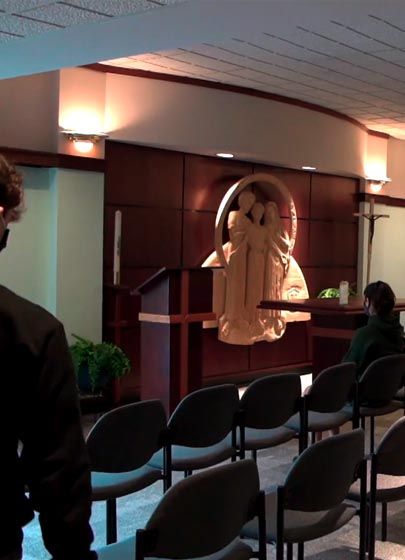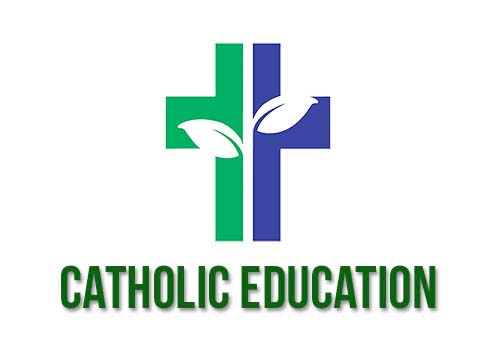Faith & Community
Faith & Community
Faith & Community

Pilgrimage
The words of Pope Benedict XVI succinctly express the essence of Catholic education: Education is integral to the mission of the Church to proclaim the Good News.

Address to Catholic Educators, Catholic University of America, April 2008
Our mission is to provide Catholic education which inspires and prepares students to learn, to work, to live fully, to serve God, and to serve one another. Furthermore, we provide a Christ-centred environment and an exemplary education to each and every student within the framework of the Gospel and the traditions of the Catholic Church. We meet the academic and social needs of our students precisely because we integrate curriculum with faith, life, and culture. We live our faith throughout the entire school day and we incorporate our faith in all subjects. Through this educational arrangement, students are encouraged to determine and develop their God-given talents and reach academic success. There are many values we nurture within our school community. Reverence, which includes tolerance and inclusiveness, is one of them. For Catholic Secondary Schools, curriculum is best described as a worldview, shaped by conversation about life’s meaning and purpose. It is a distinctive worldview committed to educating the soul.
Holy Cross Catholic Secondary School prides itself on forming the whole person, educating them in the faith, celebrating and proclaiming that faith through the Church’s liturgical, especially, sacramental, life and, through the affirmation of the inherent dignity and worth of all people, especially the weakest among us, reinforcing the call and capacity of all to contribute to the common good and the transformation of the world.
It is the critical task of a Catholic High School to integrate all aspects of human knowledge, through all areas of the curricula, in the light of our faith and Catholic Tradition, and to promote the growth of Christian virtue (cf. Ontario Catholic School Graduate Expectations, Institute for Catholic Education, 1999). And while religion must not be confined to religion classes, it is essential that it be imparted in a systematic manner, providing for the gradual formation of conscience in fundamental virtues, particularly faith, hope and charity.
All educational systems are an extension of the home, and also an integral part of the community and should therefore reflect their needs. The school must also do more than teach children to acquire skills and knowledge; it must guide the learner's total development - spiritual, intellectual, physical, social, emotional, and cultural; in all of these areas the child is considered to be unique. The school system must ensure that every child has the opportunity to develop to the limit of his/her potential.